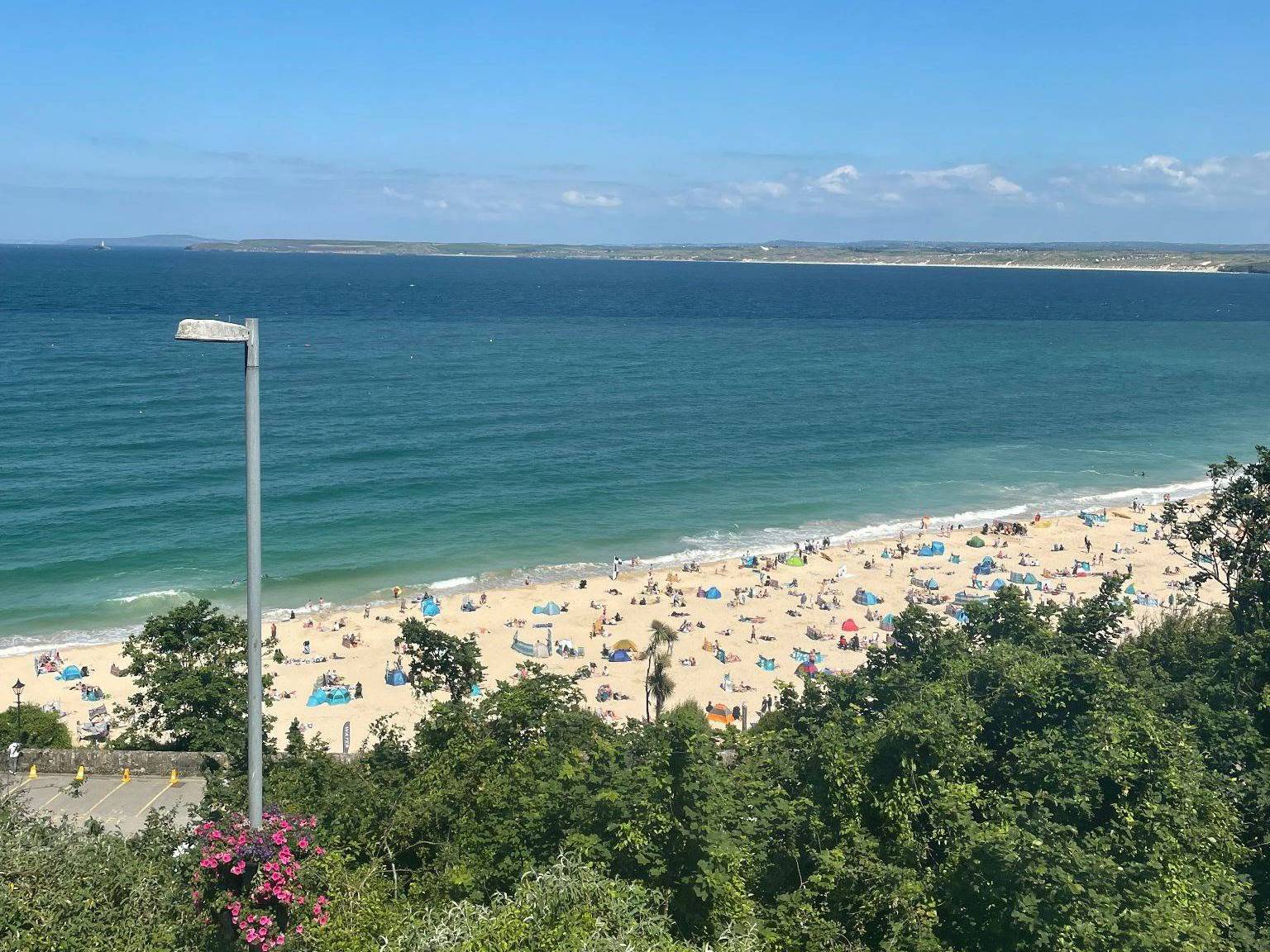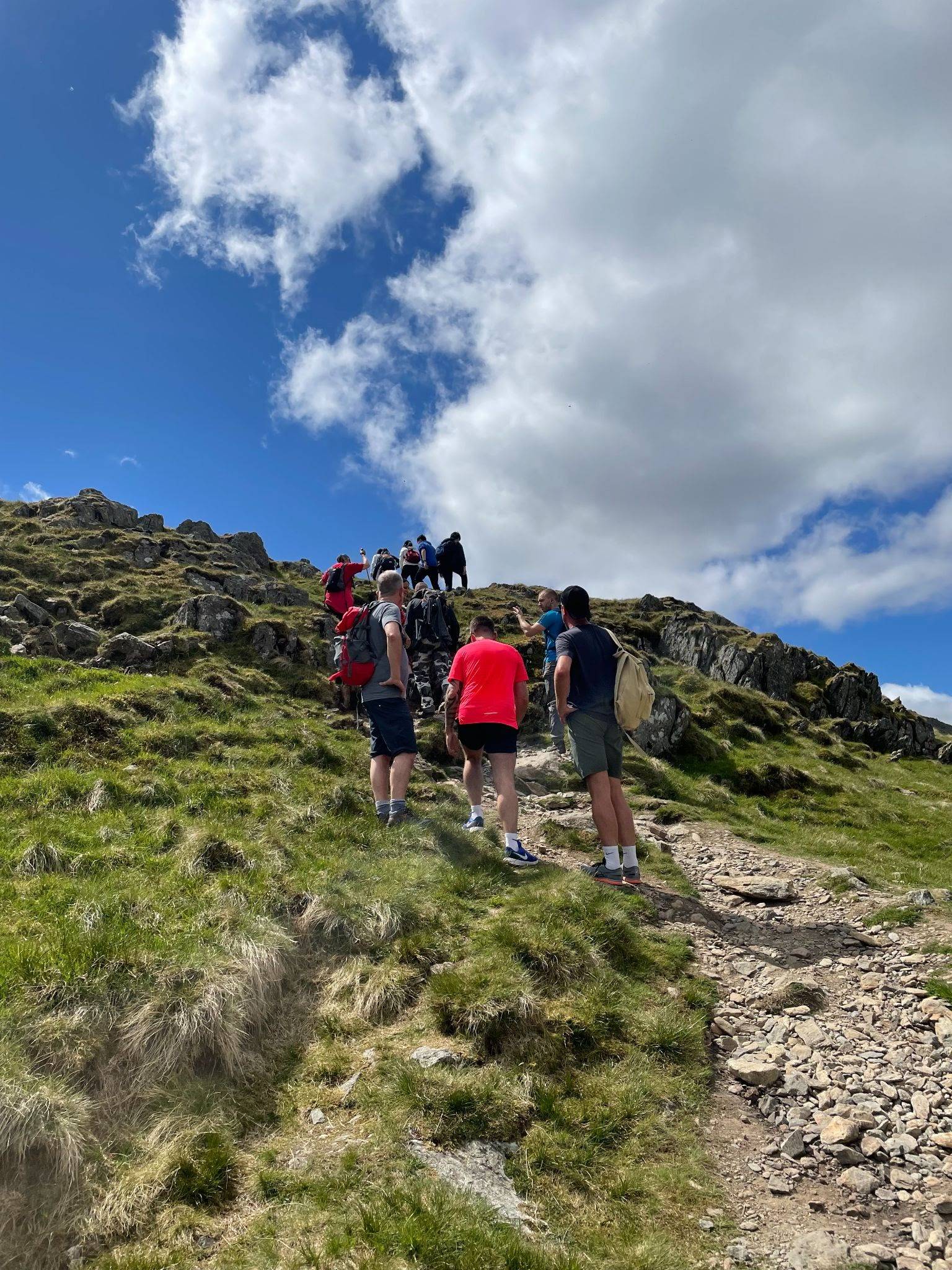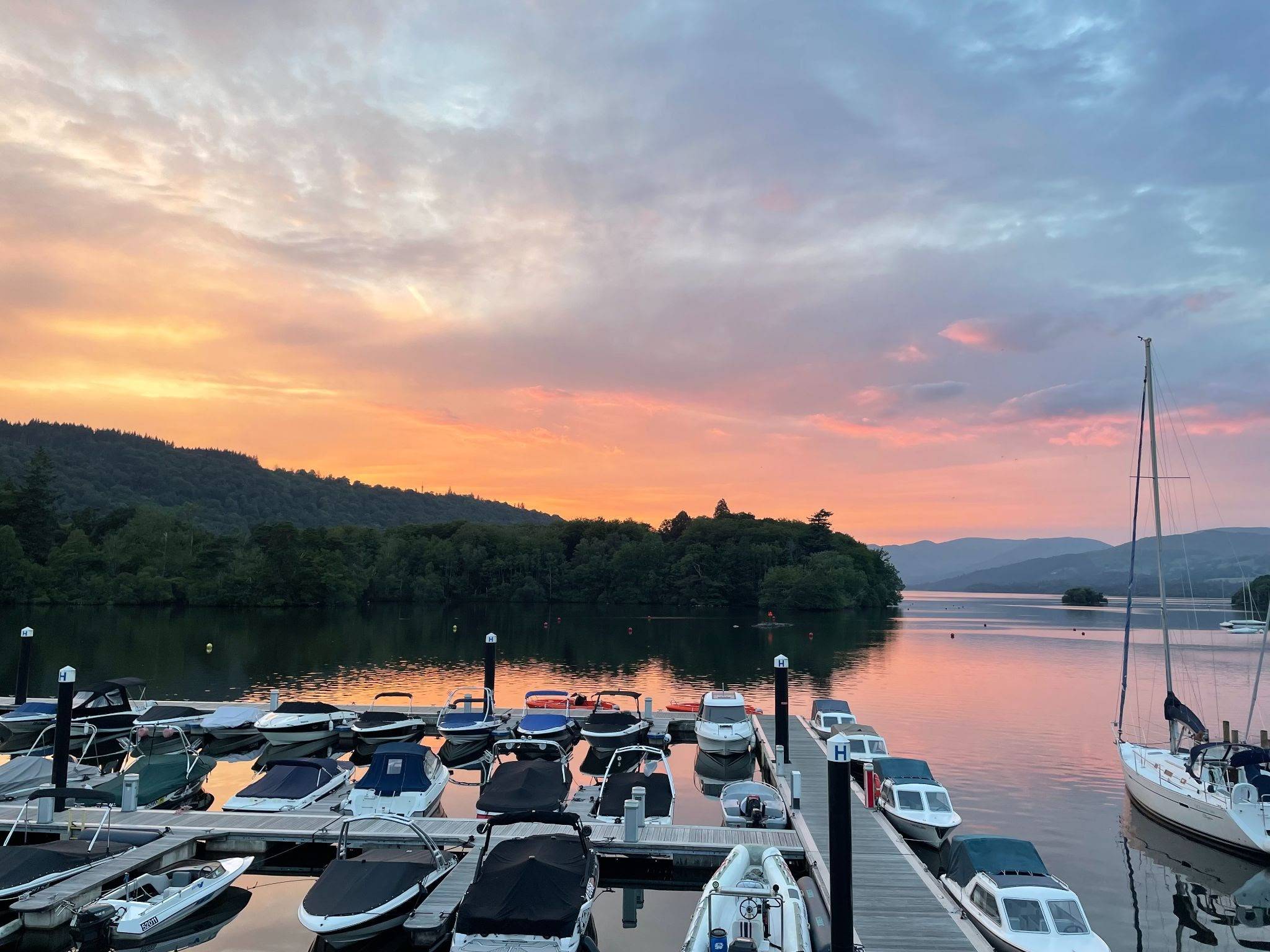Introduction
COVID-19 has had internationally significant impacts on affected populations. Economics, social interactions, schooling, travel, and other daily activities have all had to be adapted, and there is global concern that these forced adaptations will be detrimental for mental well-being. In rural towns that rely primarily on incoming tourism to maintain these facets of life, the risks associated with pandemic-related changes are particularly high. For my research project, I spent the summer of 2021 exploring how working adults in English towns like these have reacted to the pandemic, and what perceptions they hold about the impacts on themselves and their families.
Data for the project was gathered primarily from a series of interviews with working adults (ages 18–55) who live permanently in the English Lake District (colloquially called “The Lakes”). Outside of London, the Lake District is traditionally the most popular tourist destination in England. A designated national park and World Heritage Site, the Lake District’s main attractions are its mountains (locally called “fells”) and its lakes (“meres” or “tarns”). The towns in which I was primarily located, Windermere and Bowness-on-Windermere, house about 8,000 and 4,000 permanent residents respectively, though these numbers typically soar into the hundreds of thousands during the summer months with temporary visitors.
The English government implemented three national lockdowns during the course of the coronavirus pandemic, each of which temporarily banned most travel, including, at their most extreme, any domestic travel. Between these lockdown periods however, though rules for international travel remained strict and limiting, domestic travel was allowed and even encouraged. In May 2021, when I arrived in the Lake District, the country had just entered its lowest and last stage of COVID-19 restrictions before the government lifted the limitations entirely in July, the same week I left the country. Given the unprecedented and unpredictable nature of travel restrictions in England throughout the course of the pandemic, the Lake District and other rural tourist destinations were forced to adapt to new and always changing pressures unique to these nature-based “staycation” destinations.
During the interviews, I aimed to understand the impact of these undulations in visitors on the local population. The adults who participated worked in a variety of industries, including elementary education, tourism management, hospitality, leisure (gyms and pools), eco-tourism, home-renting services (Airbnb), and home mechanics. They also covered a range of positions, from directors and board members to self-employed business owners to shift workers. The questions addressed perceived impacts on economics, mental well-being, stress levels, learning and innovation, social interactions, daily routines, and the local community as a whole. In asking these questions, I sought to understand how rural populations have been affected by the pandemic, across industries both directly related to tourism and seemingly removed from it.
Results and Discussion
As garnered from interviews and observational study in these rural communities, tourism came in waves throughout the pandemic with “huge highs and lows.” One interview participant noted that in the Lake District since the start of the pandemic, “it’s been all or nothing; it’s either absolutely packed out or it’s deserted.” Whenever domestic travel was allowed, the Lake District and other rural areas immediately filled with visitors, so when I arrived in May as domestic travel reopened for the foreseeable future, all of the major hotels in the area were booked out entirely through mid-October. This high level of visitors was reflected in other rural tourist areas I visited as well, including Bourton-on-the-Water in the Cotswolds, St. Ives in Cornwall, and Stonehenge. The interview participants — both those working directly in hospitality and those working outside of it — all noted that the summer of 2021 was busier than any summer they’d had previously, including in 2019 before the start of the COVID-19 pandemic.
Notably, every interview participant, including those working outside of hospitality, also said that at least 75% of their occupation was reliant on local tourism. While this may have been expected from participants working directly in or with local hotels (50% of participants), it was also true of teachers, whose local families struggled to pay their school fees without tourist revenue; of tradesmen, whose work typically consisted of many second homes; and of local businesses, who relied primarily on tourists as their clientele (up to 95%). Even local restaurants — which could have remained open for take-away orders during lockdowns — were forced to close without tourists because, “there are not many people here so it was just not worth it.”
Of the eight adults I interviewed, all indicated that the pandemic had contributed to increased stress, and 62.5% of them linked this increase with a rise in anxiety and fear. These feelings of distress were most frequently attributed to changes at work (21.4%), restrictions on social interactions (21.4%), and the influx of visitors in the Lake District as lockdowns eased (21.4%). Other common causes of stress were fear of illness (16.7%) and watching coronavirus updates on the news (11.9%). Although 62.5% of participants were personally unaffected by financial stress during the pandemic, all indicated that it was a general area of concern in their community and the country as a whole.
As a community that relies heavily on tourism for jobs and income, it was significant that the rising number of visitors following the lockdown periods was a widespread cause for concern. One participant explained the phenomenon, saying:
“The Lakes have never been empty — it’s pretty unheard of. And we got so accustomed to going around usually really busy attractions, walking around seeing no one there for the whole walk… And then to go from that to such a drastic change of it now being busier than ever, it was just such a shock to the system that people didn’t know how to really respond to it. I think it’s a bit of social anxiety really… we became quite accustomed to our own little bubble and our own little world and then it was hard to really open it up again.”
Other participants pointed to the age demographics of their communities as a potential reason for this anxiety, noting that Windermere and the Lakes in general are largely made up of elderly and retired adults who, being at greater risk for serious illness from the coronavirus, strongly feared the return of outsiders. One participant noted that the older adults in the area were still too afraid to go out on the fells without masks, even after the government removed the mask mandate outdoors, and another said that “a lot of [elderly] people are scared because we live close to places where there are still hotspots going on, and it does cause that divide between the locals and the visitors.” In fact, many participants spoke about an overarching feeling in the community that “it’s better when it’s nice and quiet and there are no visitors, and it should stay this way.” At the same time, however, many local people, “realized their jobs were at risk without visitors because the supply chain runs quite deep — right down to tradespeople, breweries, bars, restaurants, everywhere… and a lot of people didn’t realize [previously] that the visitor economy is pretty important” to keep the local area afloat. This tension between the desire for safety and privacy and the financial reliance on visitors has further intensified the strain on the local community.
Another factor contributing to this strain and to the stress of work-related changes is an understaffing problem in the area that has been greatly exacerbated by the pandemic. All of the participants who worked in hospitality had been working overtime since hotels were allowed to reopen, and many were working outside of their original departments and positions to help fill in for missing staff. “We’re just trying to keep the business afloat and helping out in any way we can,” one participant said. Though the staffing problem existed previously, the pandemic has heightened it, as explained by one participant in the hospitality industry:
“We already had a massive problem where the pool of workers is smaller than the number of jobs. That's been the same for quite a long time: too many second homes, no affordable housing, no decent public transport, high cost of living. And then Brexit and particularly the pandemic has made a massive difference, causing a lot of people a lot of problems to the point where businesses will fail because of it.”
The COVID-19 pandemic has contributed to understaffing in several ways. First, it has given “a lot of people a chance to reevaluate their lifestyles,” and “with hospitality being 7 days a week and 24 hours a day… people are reassessing thinking about how much they miss their family and want to spend some quality time with them, and starting work at 7 in the morning and finishing late doesn’t support that.” As a result, many young people in the area are moving out of hospitality work and into other positions, leaving hotels, restaurants, and other businesses under-equipped to deal with the mass influx of tourists. Second, international travel restrictions through the pandemic have not only pushed more British citizens to travel locally, increasing strain on areas like the Lake District, but have also meant that no temporary foreign workers have been able to enter the country. Many of the hotels in the area traditionally rely on foreign students to work summers in the Lakes, and because of these restrictions hospitality workers point out that, “We can’t get staff from Europe anymore. We’re obviously struggling with Brexit and stuff as well...but usually we hire people from Spain, France, Italy, all over Europe, and we can’t because of the pandemic.” This combination of less staff and more visitors has put high strain on the local communities and contributed to both personal and occupational stress among workers.
Despite the high levels of stress and anxiety associated with the pandemic, however, during interviews participants highlighted 29.5% more positive than negative effects. The most frequent reason for feelings of positive change during the pandemic was reevaluating and realizing what was most important in life (20.8%). This was followed by coming together as a community (18.2%), appreciating the lack of visitors during the height of the pandemic (14.3%), and feeling grateful for being secure in one’s financial situation (14.3%). Other reasons included more time with family (11.7%), being less busy (11.7%), and a greater sense of appreciation for the beauty of the area (9.1%).
Positive changes actually began early in the pandemic as lockdowns were first implemented, with participants noting that “having to live under those restrictions… you couldn’t have asked for a better place to live.” Compared to most of the negative changes, however, the participants also viewed the positive changes as more likely to be longer-term, whether on a personal or community level. Further, most of these perspectives either overlooked or embraced the mass rush of visitors to the Lake District at the end of the pandemic, despite the tensions noted above.
One Windermere local told the story of his family reuniting when the restrictions from the first national lockdown were lifted, saying:
“When lockdowns were eased the interactions we had and the times we did see each other felt really, really good. I think that period of time just as the lockdowns were easing and we were all allowed to meet was really quite special and you’ll remember that — sitting in gardens and not being able to go inside to use the toilet, but you didn’t really care because you hadn’t seen anyone for months… We all had time to see each other and that’s rare with us all working shift work and different, long hours. I do remember the first time sitting in the garden with everyone after lockdown and it being a really cool, nice experience.”
This sense of appreciation for family seemed to stem directly from the stress of restrictions which previously limited social interactions, and the participants embraced family as a new priority in many ways. One participant moved back into her family home, for instance, and several others found new ways to connect to the family they already had nearby, volunteering to do grocery shopping for elderly grandparents and helping other family members with their new work-from-home responsibilities. In some cases this appreciation for family contributed to revaluation and lifestyle changes, with “a lot of [young] people reassessing and thinking about how much they miss their family and want to spend some quality time with them,” so that “the number of young people who only want to work part time or want to work flexibly or want to work partly from home is a lot more than it ever was.” These changes seem set to long outlast the pandemic — by the end of the summer, 62.5% of the interview participants had transitioned out of their pre-pandemic occupations and into new jobs or training courses that they felt aligned more precisely with their hopes for the future. One participant, who started a business with her partner during the pandemic, said that, “it was actually easier to start something during the pandemic than before… [my partner] was made redundant and I was furloughed so in terms of time we had a wealth of it — in a way it was a bit of a blessing because you could start up a business and could think about what you wanted more and get things into place more easily.” Another added, “it really does come down to time. With people reassessing their lives [during the pandemic], you have the time to fill out a really good CV and look about for jobs.”
There was also a sense of consensus among the locals that the pandemic would have long term implications for tourism in the area. Though they noted that the future was unpredictable, as they had all learned through the past two unprecedented years, they generally seemed to hold the belief that changes would, once again, be maintained in a positive direction. One participant shared this belief when asked about coronavirus’ impact on the community, saying:
“I think there’s going to be a long term change. A huge amount of [British] people we’ve spoken to have never been to the Lake District before now. The fact that it was cheaper if you lived in London to get on a plane and do a city break in Europe reinforced that you couldn’t choose this as your holiday. People have rediscovered the U.K. and the amazing places we’ve got — Cornwall, the Lakes, the Cotswolds. Lots of people who’ve never been to the Lakes before have now discovered a new favorite place and will potentially carry on holidaying here for years to come, so long term I think there will be more tourism in the Lakes permanently as people have discovered that you don’t have to go abroad to have an amazing trip away. So I think long term it’s helped U.K. tourism.”
Though there are some concerns associated with the rising number of tourists in the area, most locals seemed hopeful that these issues could be overcome. When speaking about the staffing shortage associated with the sudden influx of visitors, a hotel manager in the area said that “staffing struggles should make us all better employers… the only way we’re going to be able to employ people in the future is by being the best employer, so hopefully it’ll have a long term benefit in that way.” Additionally, while participants acknowledged environmental concerns that “the number of people [visiting] here does put pressure on the natural and built environments and communities, and if it’s not managed properly it could have a negative effect,” one also shared a story of working with other local volunteers to pick up trash the day after the first visitors returned to the Lakes, saying “what I really don’t want is tomorrow’s visitors to come and see this place all dirty, because they’ll think we live like that.” In these areas during the coronavirus, “a sense of place, while you’ve had it to yourself and it’s been quiet, has definitely developed,” according to the locals, encouraging them to “try to look after their own communities” more than ever before.
Overall, the parting sentiments of the Lakes locals were consistently positive. “I’ve come out of it probably more compassionate and kinder,” one participant said, while another noted, “Everyone has more empathy now.” A third added, “It puts things into perspective of what’s important and it’s nothing materialistic. It stripped it right back and it’s all about your health and your family. And I don’t think you’ll forget that — it’s such a significant event that I like to think that’ll always stay there. I think we all needed a little bit of that reminder.”
Conclusion
England’s rural tourism communities demonstrated remarkable resilience during the COVID-19 pandemic. Though faced with the same stress and fear as populations across the world, they were uniquely situated to take on tourists safely even when urban centers were unable to do so. Even where this influx of visitors contributed to tensions and strain on the local communities, the people within them remained relentlessly positive. Communities came together to support each other — to care for their elderly, to connect with their loved ones, to protect their natural environments — and at the same time adapted to unpredictable undulations in incoming visitors from across the country. These areas are likely to continue to face rising demands on their businesses and landscapes, and they are still working to recover from losses during lockdowns. Yet, they remain hopeful that they have made it through the most difficult stages of the pandemic, and have come out stronger, more appreciative, and kinder on the other side. They believe they are ready to rise to the challenges of the coming months, and they remain fiercely loyal to one another, and to the natural landscapes they call home.


